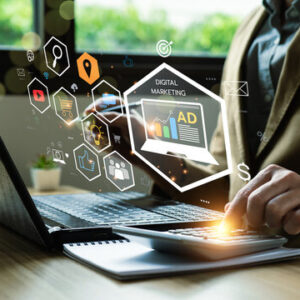In the modern business world, design is not decoration—it is differentiation. Custom graphic design services go beyond visuals to craft communication tools. A professionally designed logo, consistent branding, compelling packaging, and sharp digital visuals convey trust, evoke emotions, and influence decision-making.
This guide walks you through the anatomy of custom design, structured with semantic clusters that align with your brand goals, customer expectations, and digital marketing strategy. It’s not about trendy visuals. It’s about design that performs.

What Are Custom Graphic Design Services?
Custom graphic design refers to bespoke visual assets created specifically for a business or brand. Unlike templates or stock designs, custom designs are tailored to represent the unique personality, values, and voice of a brand.
These services include, but are not limited to:
-
Logo design
-
Brand identity systems
-
Business cards and brochures
-
Packaging and labels
-
Social media visuals
-
Infographics
-
Website graphics
-
Animated content
Why “Custom” Matters
In a saturated market, being memorable is a competitive advantage. Custom design:
- Reflects brand authenticity
- Helps differentiate from competitors
- Builds trust and recognition
- Aligns with brand tone and values
- Improves conversion by guiding user behavior
This isn’t about making things look nice—it’s about using design as a strategic asset.

Logo Design
What Is a Logo?
A logo is the visual signature of your brand. It’s a symbol or wordmark that people associate with your business. But it’s more than just a graphic—it’s a positioning tool.
Key Types of Logos:
-
Wordmark (e.g., Google)
-
Lettermark (e.g., IBM)
-
Pictorial mark (e.g., Apple)
-
Abstract logo (e.g., Nike)
-
Emblem (e.g., Harley-Davidson)
Design Elements in Focus:
-
Typography: Conveys voice and tone
-
Color psychology: Evokes emotion and association
-
Simplicity: Supports scalability and memorability
A custom logo should work across various touchpoints: digital, print, signage, merchandise.

Brand Identity Systems
Your brand is not your logo. It’s a system—a visual language.
Core Identity Elements:
-
Logo usage rules
-
Primary and secondary colors
-
Typography pairings
-
Iconography
-
Photography style
-
Brand voice guidelines
Brand identity design ensures that every interaction your customer has with your business feels consistent and intentional.
Visual consistency = brand recall + perceived credibility
Print Collateral
While digital dominates, print isn’t dead. In fact, print collateral adds tangibility and professionalism.
Essentials in Print:
-
Business cards
-
Letterheads
-
Brochures
-
Flyers
-
Catalogs
-
Presentation folders
-
Event signage
Print design requires an understanding of:
-
Bleed and margins
-
CMYK color profiles
-
Paper types and finishes
-
Grid layouts
Your print presence should reinforce your digital brand, not compete with it.
Packaging Design
If you sell physical products, your packaging is your silent salesperson.
Effective Packaging Design:
-
Communicates benefits clearly
-
Stands out on crowded shelves
-
Reflects brand values
-
Follows legal and regulatory requirements
-
Is practical for shipping and handling
In food, cosmetics, and consumer goods, packaging design affects purchase decisions. Great packaging increases perceived value—and by extension, pricing power.
Digital Visuals
Social Media Graphics:
-
Platform-specific dimensions
-
Campaign consistency
-
Branding elements (logo, colors, typography)
-
Visual hooks (quotes, stats, UGC)
Website Graphics:
-
Hero images
-
Product images
-
Icons
-
Visual CTAs
-
Responsive scaling
Email Templates:
-
Visual hierarchy
-
Brand alignment
-
Mobile optimization
Ads and Banners:
-
High CTR design principles
-
Clear CTA
-
Emotionally driven visuals
Every visual on digital platforms should contribute to your conversion funnel—not distract from it.
Motion Design & Animation
Motion adds life to static visuals. Whether it’s a looping Instagram GIF, animated explainer, or subtle UI animation—it improves retention and engagement.
Use Cases:
-
Logo reveals
-
Product animations
-
Explainer videos
-
UI/UX animations for apps or websites
-
Interactive storytelling
Animation involves:
-
Storyboarding
-
Motion timing
-
Sound syncing
-
Export optimization (MP4, GIF, Lottie)
The Design Workflow: From Brief to Delivery
-
Discovery Phase
-
Business goals
-
Target audience
-
Brand tone and personality
-
-
Concept Development
-
Moodboards
-
Initial sketches
-
Design directions
-
-
Refinement
-
Revisions based on feedback
-
Color and typography finalization
-
Format testing (web, print, etc.)
-
-
Final Deliverables
-
Source files (AI, PSD, SVG)
-
Exported assets (JPG, PNG, PDF)
-
Brand guidelines
-
-
Post-Delivery Support
- Format updates
- Collateral expansion
- Seasonal adaptations
| Term | Definition | Adjacent Topics | Named Entities | Predicates |
|---|---|---|---|---|
| Logo design | Symbol or wordmark representing a brand | Typography, branding | Adobe Illustrator, Canva | represents, identifies |
| Brand identity | Visual and verbal language of a brand | Color theory, design systems | Figma, Sketch | defines, communicates |
| Packaging design | Visual design of product containers | Label design, shelf marketing | Pantone, Die-line | enhances, influences |
| Social media graphics | Custom visuals for social platforms | Hashtags, campaign creatives | Instagram, Facebook | boosts, engages |
| Business card design | Personalized physical brand card | Contact info, QR code | Vistaprint, Moo | introduces, networks |
| Typography pairing | Matching fonts for hierarchy and clarity | Serif, sans-serif, kerning | Google Fonts, Typekit | aligns, organizes |
| Motion graphics | Animated visual content for branding | Video editing, GIFs | After Effects, Lottie | animates, draws attention |
| Brochure layout | Folded print material for info delivery | Fold types, copywriting | InDesign, CorelDRAW | educates, sells |
Content & Design: Unified for Performance
Great design is not created in a vacuum. It is born from clarity of purpose and alignment with content strategy.
Pairing Design with Copy:
- Headers guide attention
- Images support text, not replace it
- CTAs are visible and compelling
Design + SEO:
- Use image alt attributes with context
- Keep file sizes optimized for performance
- Use SVGs and web-safe fonts
- Ensure mobile-friendliness
- Match visuals to intent (informational, commercial, transactional)
Local SEO & Design Services
If you operate regionally, your visuals should reflect cultural and geographic relevance. Design for:
- Language specificity
- Cultural symbols
- Location-based color and icon usage
And make sure your website uses location-based landing pages:
E.g., Custom Graphic Design Services in Lahore | Brand Identity & Logos
Choosing a Custom Graphic Designer
When evaluating design partners, look for:
- Portfolio depth (not just quantity)
- Process transparency
- Understanding of your niche
- Access to original source files
- Ongoing support
Questions to ask:
- Can you walk me through your design process?
- What is your revision policy?
- Do I own the final files?
- Have you worked with similar businesses?
Final Thoughts
Custom graphic design isn’t about beauty—it’s about function with flair. It’s about creating a visual language that speaks for your brand when you’re not in the room.




